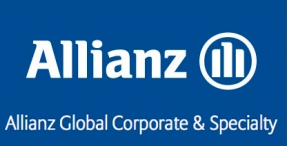AGSC rolls out five trends for 2023
By Favour Nnabugwu
Allianz Global Corporate & Specialty (AGCS) has released a new report giving its insights for the coming year on the international directors and officers market.
The report says that the five trends needed to guard against in 2023 are economic and recession risks, cyber security struggles, ESG disclosures and exposures, US class action securities litigation, and antitrust and competition risks.
On the first economic and recession risks, the firm pointed to the 10.7% inflation rate in the Euro area. It also predicted that the world would tip into recession in 2023, writing: “Allianz Research expects global growth to slip into negative territory in Q4 of 2022 (-0.1% q/q), followed by a slow recovery at +1.5% in 2023.
Eurozone growth is likely to plunge to -0.8% in 2023 due to soaring energy prices and negative confidence effects creating a shock on real disposable incomes and corporate margins. The US will register a -0.7% fall in GDP, mainly due to rapidly tightening monetary and financial conditions, which will significantly cool the housing market.”
It added: “Macroeconomic scenarios have been adjusted repeatedly over the past months. An important consideration for 2023 is the impact state interventions will have on government budgets and whether credit ratings of government debt will remain stable, concludes [David Van den Berghe, global head of financial institutions at AGCS].
The possibility of sovereign debt rating downgrades looms over firms carrying these assets on their balance sheets. This is another area of concern for underwriters in addition to the volatility on the stock markets which we forecast will remain high in 2023.”
The report says that the five trends needed to guard against in 2023 are economic and recession risks, cyber security struggles, ESG disclosures and exposures, US class action securities litigation, and antitrust and competition risks.
On the first—economic and recession risks—the firm pointed to the 10.7% inflation rate in the Euro area. It also predicted that the world would tip into recession in 2023, writing: “Allianz Research expects global growth to slip into negative territory in Q4 of 2022 (-0.1% q/q), followed by a slow recovery at +1.5% in 2023.
Eurozone growth is likely to plunge to -0.8% in 2023 due to soaring energy prices and negative confidence effects creating a shock on real disposable incomes and corporate margins. The US will register a -0.7% fall in GDP, mainly due to rapidly tightening monetary and financial conditions, which will significantly cool the housing market.”
It added: “Macroeconomic scenarios have been adjusted repeatedly over the past months. An important consideration for 2023 is the impact state interventions will have on government budgets and whether credit ratings of government debt will remain stable, concludes [David Van den Berghe, global head of financial institutions at AGCS].
The possibility of sovereign debt rating downgrades looms over firms carrying these assets on their balance sheets. This is another area of concern for underwriters in addition to the volatility on the stock markets which we forecast will remain high in 2023.”
AGCS wrote also about the evolving landscape of cyber security threats, saying that issues around data security and information protection were of increasing concern to the higher echelons within companies.
AGCS wrote: “Recent years have seen a dramatic increase in the number of incidents, with the aftermath of events such as data breaches being devastating for the companies affected, including fines, costly breach notification procedures, business interruption, and intensely negative publicity.”
It added: “It is little wonder that investors increasingly view cyber security risk management as a critical component of a company board’s risk oversight responsibilities and, being fiduciaries, board members are therefore expected to develop and maintain accountabilities for cyber security before, during, and after any cyber incident.”
The firm also pointed to the increasing compliance requirements along with the prospect of regulatory or legal action from issues impacting directors and their insurance policies. The fourth point—US class action securities litigation—was related, talking about trends in SPACs, the pace of filings, large cases, merger objections, crypto, and Covid.
Finally, it said that increased enforcement around antitrust and competition risks could lead to more D&O claims. It pointed to President Joe Biden’s executive order Promoting Competition in the American Economy that took aim at the pharma, tech, and agriculture industries.
Angela Sivilli, co-head of global practice group for commercial D&O and financial institutions claims at AGCS, said: “This new aggressiveness by the DOJ may lead to an increasing number of D&O claims. Firstly, antitrust enforcement actions can lead to ‘follow on’ civil D&O claims, both against companies and against individual directors and officers.”

